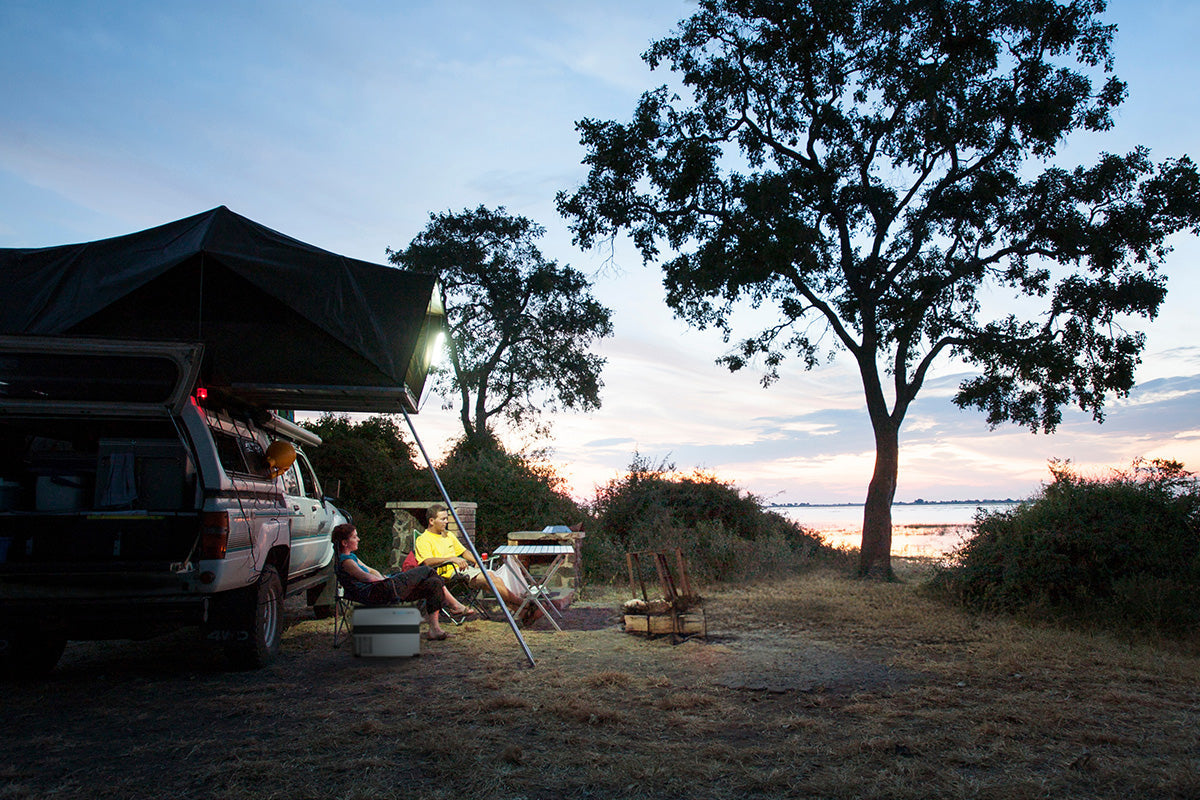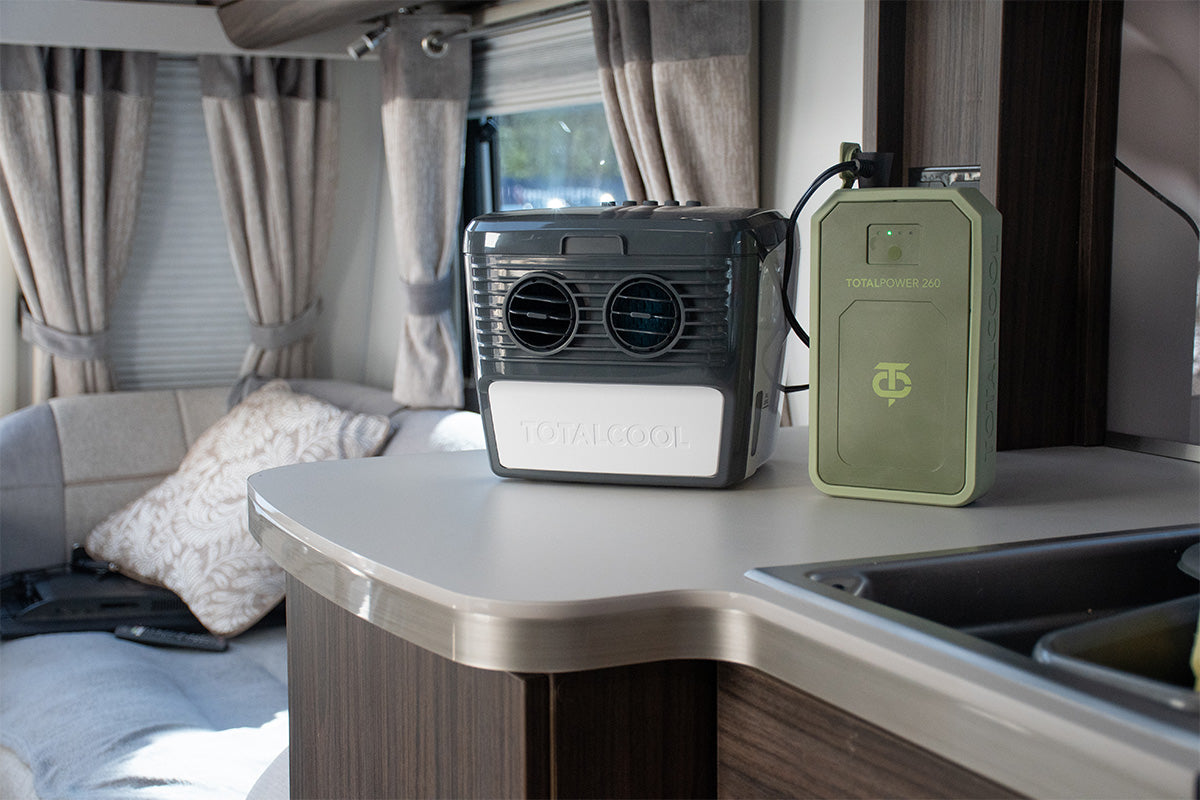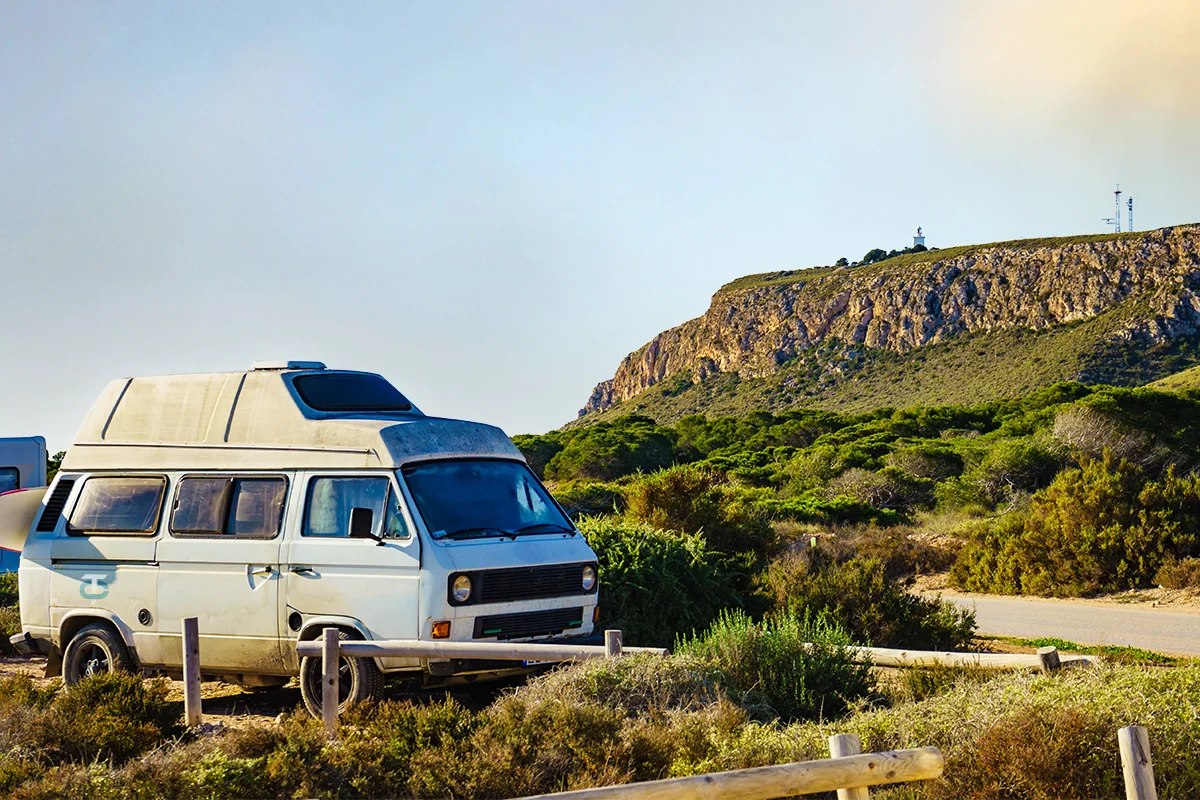Introduction
Keeping warm on outdoor adventures can make or break your trip, a diesel heater can make the difference between a comfortable fun outing and a cold miserable one. The two most popular options are portable diesel heaters and fitted diesel heaters. Both deliver reliable heat, but they offer very different benefits. This guide will help you decide which one is right for your style of travel.
What Is a Portable Diesel Heater?
Portable diesel heaters are self-contained heating units designed to sit outside your tent, campervan, or caravan and blow warmed, clean air inside through a flexible duct. Inside the box is a small diesel burner and heat exchanger, a fuel pump, a 12V fan, and a controller. Combustion happens in a sealed chamber that’s separate from the air you breathe: the unit burns diesel from an integrated tank or small jerry can, vents exhaust safely outdoors, and uses the fan to push heated air into your living space.
Setup is straightforward: place the unit on level ground downwind, connect 12V power (from your vehicle socket or a leisure battery), attach the hot-air hose through a window or vent, route intake and exhaust pipes away from people and fabric, then start the priming/ignition cycle. Once running, you set a temperature or fan level and the heater modulates automatically. Typical portable units deliver around 2–5 kW of heat, use a limited amount of diesel and electrical power, they also keep noise, fumes, and condensation outside making them ideal for renters, occasional winter trips, or anyone who wants warmth without permanently modifying their vehicle.
Key Features of Portable Diesel Heaters
- Lightweight and compact design
- No permanent installation required
- Can be used across multiple setups (tents, campers, caravans)
- Simple to store when not in use
- Heat output: typically ~2–5 kW for small to medium spaces
- Fuel & power: runs on diesel (~0.1–0.5 L/hour) and 12V DC; low running draw with a brief higher start-up surge
- Clean, dry heat: sealed combustion with exhaust kept outside to reduce fumes and condensation
- Controls: thermostat or fan modes; some models include timers, remotes, or app control
- Noise & placement: external pump “tick” and fan hum; best placed downwind and away from sleeping areas
- Accessories: usually includes ducting, outlet nozzle, intake/exhaust pipes, clamps, and a carry case
- Weather & altitude: splash-resistant housings; some units offer cold-start and altitude modes
- Maintenance: periodic filter checks and burner/glow-screen service keep performance consistent
What Is a Fitted Diesel Heater?
Fitted diesel heaters are permanently integrated heating systems designed to live inside the fabric of your campervan or caravan. The heater unit is typically mounted under a seat, in a locker, or underfloor on vibration-damping mounts. Warm air is delivered to the living space through fixed ducting and vents. Fuel is supplied either from a standpipe fitted to the vehicle’s main diesel tank or from a small auxiliary tank; a metering pump doses fuel into a sealed burner and heat exchanger. Combustion air and exhaust are routed outside through dedicated pipes, so fumes stay out of the cabin, while a separate fan recirculates interior air across the heat exchanger to provide clean, dry heat.
Electrically, the system ties into your 12V leisure battery with proper fusing and wiring, and is controlled by a wall thermostat or digital controller (many offer timers, altitude modes, and app/remote options). Typical outputs are in the 1–5 kW range, with the unit modulating to maintain set temperature. Installation usually involves cutting holes for the intake/exhaust and fuel line, adding a fuel pickup, routing ducts and cabling, and commissioning the system (priming, leak checks, and airflow/exhaust verification). The result is quiet, efficient heat at the cost of professional fitting, ongoing servicing, and permanent modifications to the vehicle.
Key Features of Fitted Diesel Heaters
- Permanent, hidden installation (under-seat, locker, or underfloor)
- Clean integration with the vehicle (fixed ducting/vents and neat controls)
- Runs from the main diesel tank via a standpipe; auxiliary tank option for petrol vehicles
- Heat output: typically 1–5 kW, sized for small–medium campers
- Fuel consumption: ~0.1–0.5 L/hour depending on setting
- Electrical: 12V supply; brief start-up surge for the glow plug, low running draw
- Air distribution: multi-vent layouts (living area, cab, or demist outlets)
- Controls: wall thermostat/digital controller, timers, altitude/cold-weather modes, optional remote/app
- Noise management: quiet in-cabin; isolate pump “tick” and use intake/exhaust silencers
- Safety: sealed combustion with external exhaust, overheat/flameout protection; CO alarm still recommended
- Maintenance: periodic service (filters, glow screen, decoke) with onboard diagnostics/fault codes
- Professional fitting & servicing required: cutting/drilling for intake, exhaust, and fuel lines; leak and airflow checks
Pros and Cons of Portable Diesel Heaters
Advantages:
- Affordable compared to fitted systems
- No modifications to your vehicle
- Transferable between vehicles or camping setups
- Easy to set up and pack away
Disadvantages:
- Requires external storage space when traveling
- Slightly noisier in operation compared to fitted units
- Needs separate fuel supply and handling
Pros and Cons of Fitted Diesel Heaters
Advantages:
- Seamless integration with your camper or caravan
- Quieter and often more efficient in operation
- No need for external setup each time
Disadvantages:
- High installation costs
- Permanent modifications to the vehicle
- Less flexible if you switch vehicles or camping styles
Which Heater Should You Choose?
If you want a flexible, affordable, and portable solution, a portable diesel heater is the best choice. If you live in your camper full time and value seamless integration, a fitted heater may be worth the cost and effort.
Conclusion
Both types of diesel heater will keep you warm on the road. The right choice depends on how and how often you travel. If you move between tents, awnings, and multiple vehicles, or want low upfront cost with no permanent modifications a portable unit offers maximum flexibility. If you use the same camper regularly (or live in it) and value “always ready” convenience, quieter operation, and neat ducting, a fitted heater is the better long-term option. Weigh your budget (purchase vs. installation), available space and payload, access to 12V power and diesel, noise tolerance, and your willingness to handle or pay for installation and servicing.





Leave a comment
This site is protected by hCaptcha and the hCaptcha Privacy Policy and Terms of Service apply.